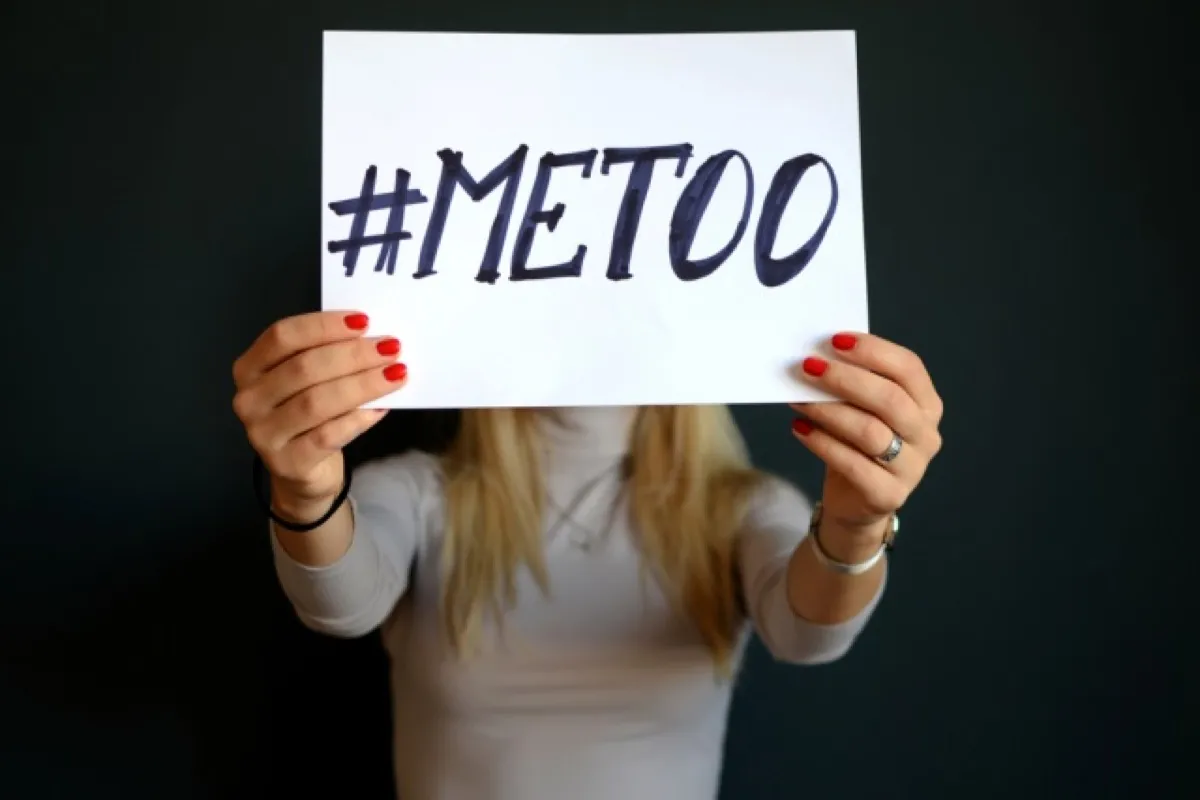#MeToo sparked a revolution. Or did it? The movement (originally started by Tarana Burke, gaining new momentum in October 2017) has outed numerous sexual predators/harassers/sexists/all-around-bad-dudes from Hollywood, Silicon Valley, politics, Wall Street, and across other industries. Harassers have primarily been accused via media outlets and newspapers, highlighting how the accusers often feel safer reaching out to journalists than law enforcement or supervisors—and that’s pretty f***ed.
It took more than year to arrest Harvey Weinstein after the now-infamous New York Times article that outed him for the monster he is. Can we all just ruminate on that for a moment? It took more than a year to arrest Harvey Weinstein, who stands accused of raping, assaulting, or harassing more than 80 women.
So, what’s happened since? In the United States, the making of laws is slow going, and the changing of a culture that creates people like Weinstein is, perhaps, even slower.
Here are some of the concrete things #MeToo has prompted when it comes to sexual harassment in the workplace …
• New York has passed a slew of new #MeToo-inspired laws.
The new laws mandate workplace sexual harassment prevention training once a year, as well as employers setting up state regulated protocols if an employee were to harass a coworker. New York also passed laws that extend protections against sexual harassment to independent contractors, like Uber drivers.
• Uber, Lyft, and AirBnB nixed forced arbitration in cases of sexual harassment.
The shift in company policy came when 14 women who experienced sexual harassment (including rape) in Ubers wrote a letter to the company asking their collective cases go into the public prosecution system rather than a company arbitrator. It was then, over Twitter, that Tony West, Uber’s chief legal officer, announced Uber would allow any sexual harassment allegations to go through the public court system.
A few hours later, Lyft followed suit, nixing forced arbitration. AirBnB has now also followed.
• Wall Street has developed what’s been deemed the “Weinstein Clause.”
The “Weinstein Clause” allows investors to cancel deals if it comes to light that top executives within the company are sexual harassers. In some cases, a violation of the clause could mean buyers would get some of their money back if a harassment scandal might hurt the company.
• Vermont has passed new #MeToo-inspired laws.
Vermont’s new laws have expanded sexual harassment protection to all workers, including interns, independent contractors, and volunteers. The new laws also protect workers stepping forward to report sexual harassment, even if they’ve signed a non-disclosure agreement and/or have already reached a settlement with their employer.
The laws also allow the attorney general and human rights commission to investigate employers on their own, to make sure they’re complying.
These twenty-two states all require some form of sexual harassment training. About a third of the above states only require training for state employees, whereas the other two thirds require training throughout the private sector, as well. In some of these states, like Louisiana, these are new regulations. In other states, like California, these are older regulations, predating #MeToo.
• Delaware expanded #MeToo laws.
In a somewhat more limited set of laws than Vermont, Delaware protects more workers from sexual harassment, including state employees, unpaid interns, job applicants, employees working for more than one company, apprentices, and employment agency workers.
• According to the New York Times, of the 201 men removed from their jobs following sexual harassment allegations, nearly half of their replacements have been women.
Women have often been viewed as risky hires, since they might, you know, want kids some day, but in the wake of #MeToo, men have also come to be seen as risky hires. Not to mention, it looks a lot better when you hire a woman after sexual harassment allegations have surfaced against a man. (It should be noted that, at least when referring to #MeToo, all those fired for harassment have been men.)
Hiring more women, harassment prevention training, and the nixing of forced arbitration don’t fix the problem of workplace sexual harassment, but it’s a start.
We, as individual citizens, must put pressure on our elected officials to pass laws like those in Vermont. We must place pressure on employers to do away with forced arbitration in cases of sexual harassment, and to mandate sexual harassment prevention training. We need laws to draw the line between what’s acceptable and unacceptable.
Beyond the laws, we need to work everyday to change the culture around us.
That means asking for that pay raise you deserve as a woman. That means fostering a culture that takes care of individuals stepping forward about sexual harassment and creating clear channels for individuals to do so. That means reassuring and protecting those that step forward from losing their jobs. That means so many things beyond what we’re doing now.
More than a year after the #MeToo movement took off, we will always have farther to go, but it’s nice to take stock for a moment and see that change is happening.
(image: Shutterstock)
Sarah Durn is a professional actor, freelance writer, swashbuckler, filmmaker, and dark-chocolate lover. She’s a conflicted-feminist addicted to rom coms and period dramas, a lover of films that delve into the strange, whimsical, or fantastic with a soft spot for any films that feature Kiera Knightley or a young Hugh Grant. See the latest at: https://sarahdurn.ninja/.
Want more stories like this? Become a subscriber and support the site!
—The Mary Sue has a strict comment policy that forbids, but is not limited to, personal insults toward anyone, hate speech, and trolling.—









Published: Mar 19, 2019 02:19 pm